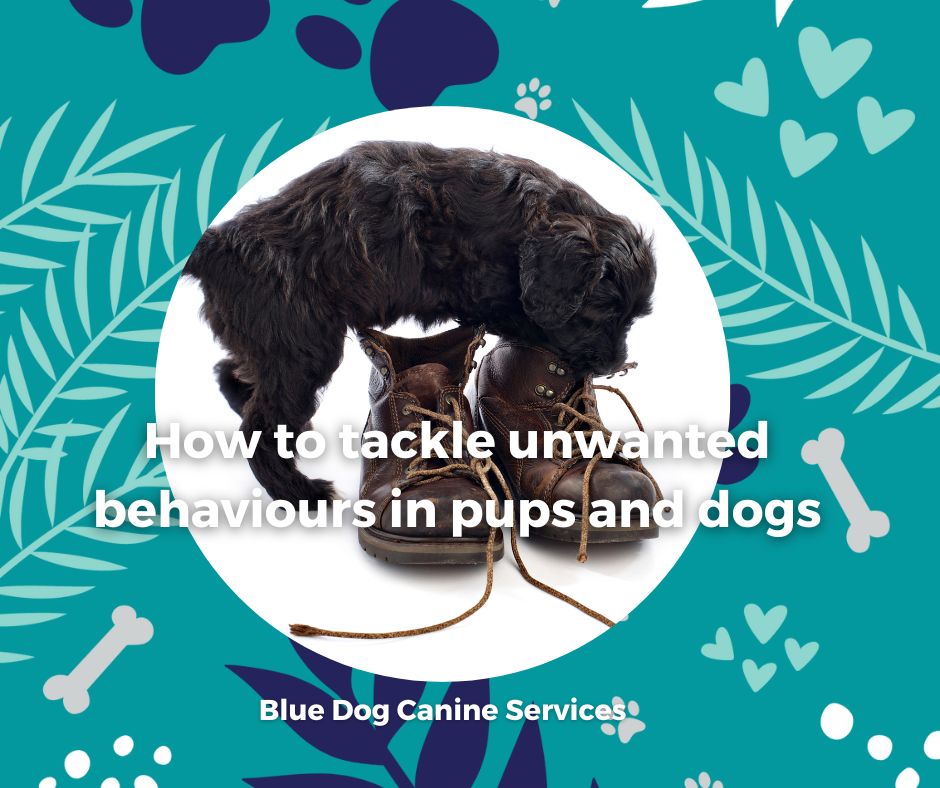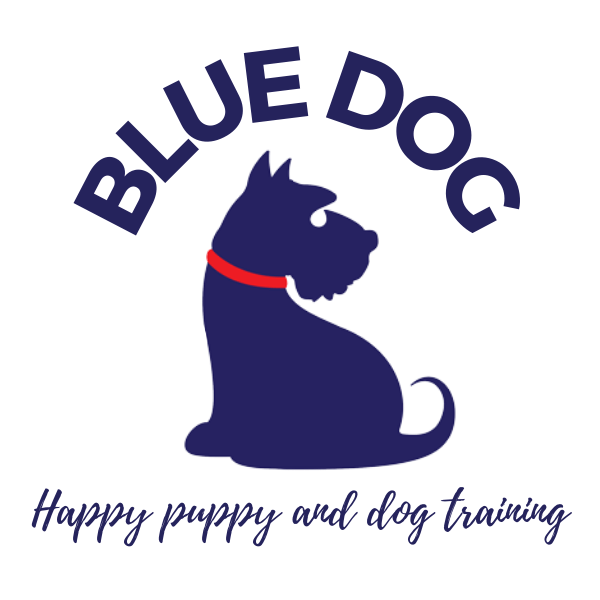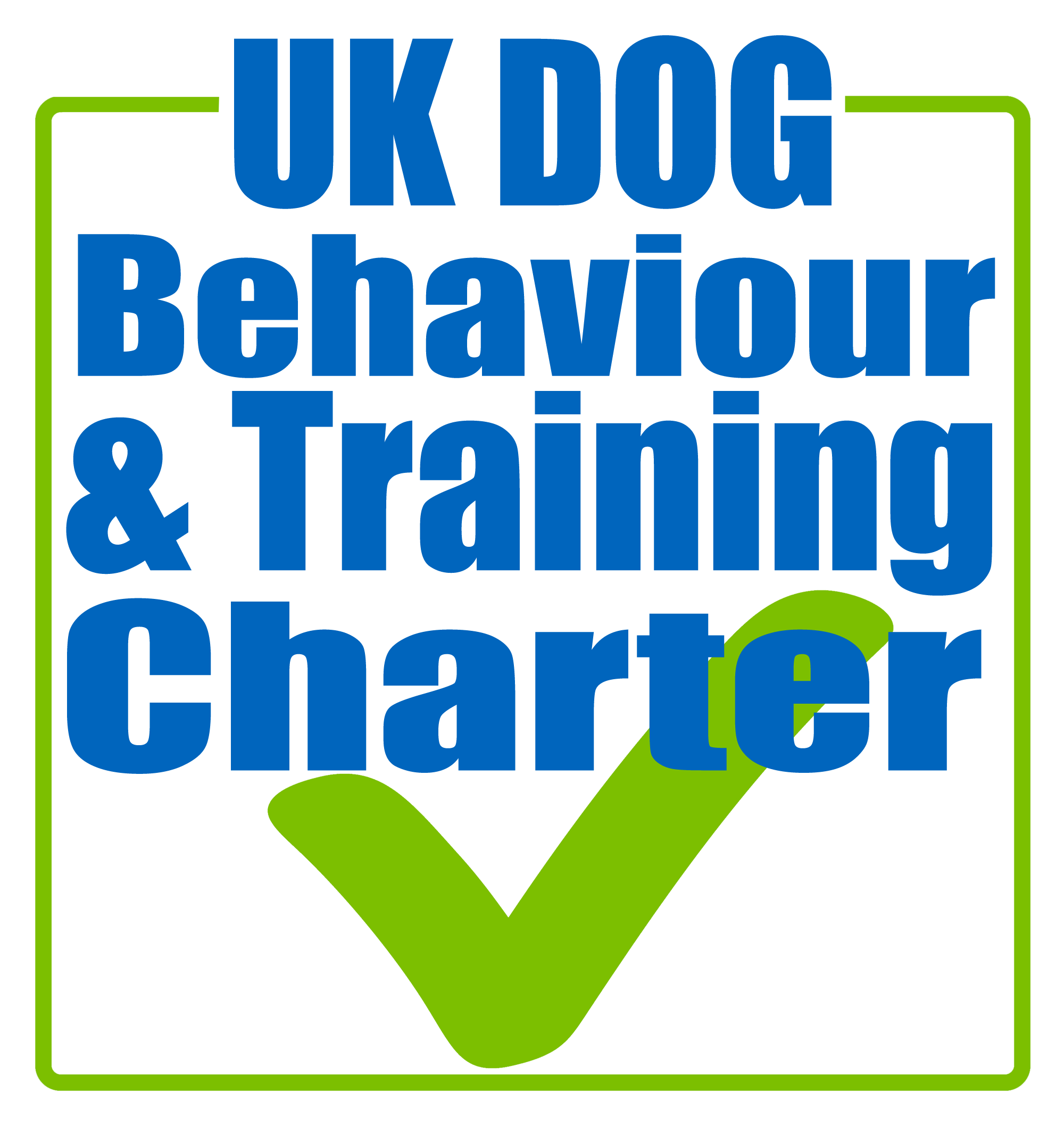
Unwanted behaviours in puppies are most often linked to being over aroused, over excited or over tired! That's why making sure that they get plenty of rest, sleep and calming activities is so so so important.
These behaviours include are all those things that you don't want your dog to do such as jumping up, greeding, chewing the table leg and many other things.
First of all consider why is puppy doing the behaviours, ask yourself:
- Are they over stimulated, scared, or anxious? Take appropriate action to help them calm down and focus on something calming and positive. Dogs are like us and can't think rationally when in an emotional state.
- Are they doing it because they are over-tired? If so, give then settle them down in their Den for nap time.
- Are they chewing your table leg because they are in pain with teething? In this case you'd redirect them onto an appropriate chew to ease the pain.
- Are they doing it because they haven't been taught another appropriate alternative behaviour to do instead? Use reward based training to teach them a better choice behaviour to do next time.
- Is it happening because of something you have or have not done? For example if you haven't taken them out to toilet when you should have done and they've had an accident in the house - then that's your fault not your puppy's.
- Is there any other reason it could be happening? If none of the above apply, then you'll still need to try to figure out why your puppy is doing it, so that you can take action to help them.
It's also worth remembering the unwanted behaviours can be strengthened when they are allowed to be rehearsed and also when they are rewarded.
For example, if puppy jumps to say hello and they get a load of fuss then inadvertently the jumping has just been reinforced. Likewise, if "greeding" results in getting a bit of your dinner, then guess what, "greeding" was just rewarded too.
Using force and punishments to tackle behaviours we don't like, will have negative consequences for your puppy and their relationship with you (this includes shouting "no" or "ah-ah" at them), and is likely to make puppy wary of you or even scared of you and seriously damage your relationship.
Our Top Tips to help you when dealing with unwanted behaviours:
1.Management and prevention:
This is hugely important because first of all, you are going to need manage things so that pupster doesn’t get to practise the behaviours you don’t like so that that the unwanted behaviour never ever gets reinforced.
For example, puppy proofing your home and garden constantly will mean there are no 'illegal' chew toys lying around (such as remote controls, shoes and children's toys) and so they never get the chance to chew 'illegal stuff'. Once appropriate management is in place to prevent the behaviour happening, you can then start to teach an alternative behaviour.
2. Training an alternative good choice behaviour:
Once appropriate management is in place to prevent the behaviour happening, you can then start to teach an alternative behaviour. Instead of focusing on the stuff you don't like you’re going to focus your attention on training an alternative behaviour that you like to replace the unwanted one.
Using reward based methods, you are going to heavily reinforce an alternative behaviour that pup cannot do at the same time as the unwanted one. Through training an alternative behaviour you are teaching your pup what are appropriate behaviours to choose and that by doing these behaviours means you are more likely to get access to the awesome stuff! Four paws on he floor is a great one to teach as it helps combat jumping up! A pup can't jump and stand at the same time!
Catch and reward your pup when they are doing good stuff and look out for them making good choices so that your pup will do them again!
3. Redirect your puppy onto something appropriate
This is switching their focus when doing something unwanted and redirecting them to a more appropriate desirable behaviour. For example, if puppy is happily chewing your table leg (we are assuming you don't want this to happen), then you can redirect your puppy onto an allowed chew toy and give them lots of praise.
4. Another useful tool is to train a positive interrupter.
Say your puppy or dog is about to do something we aren't keen on...jump up, chew the table, counter surf, whatever...a conditioned "Positive Interrupter" can help interrupt the behaviour and then you can ask them to do something more appropriate.
Subscribe to The Happy Pack for four pawsome free dog training downloads!










